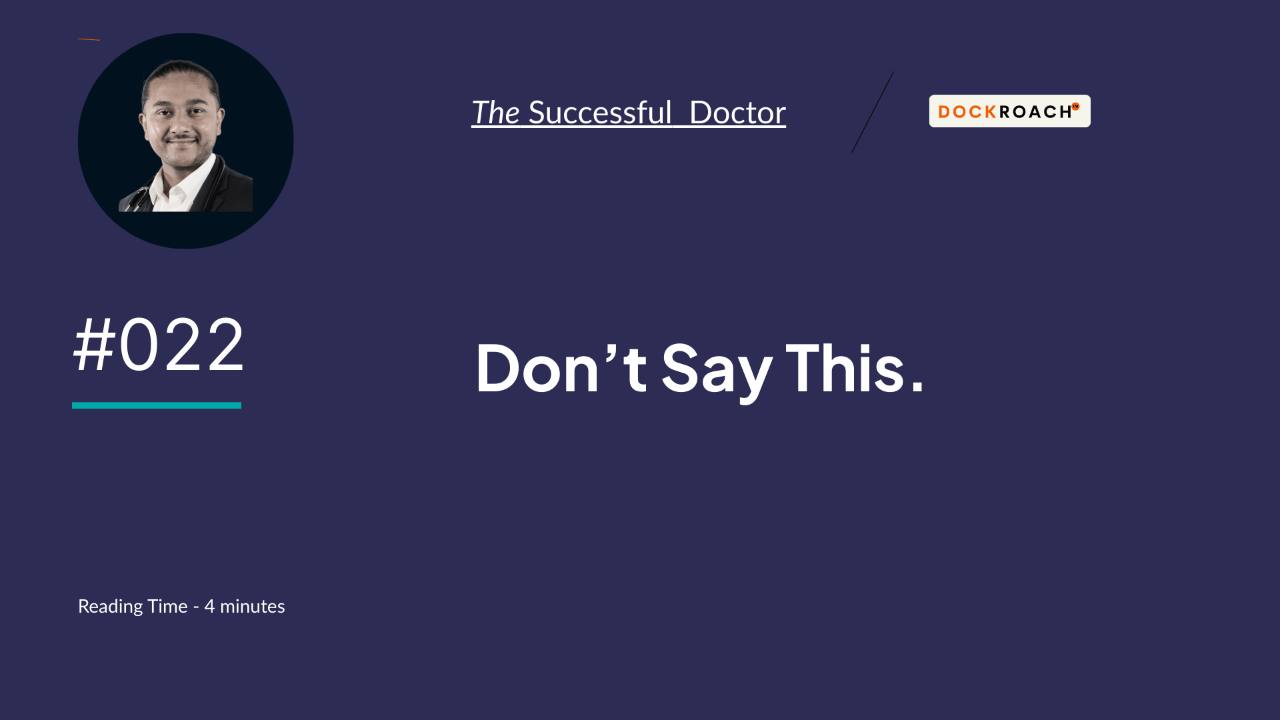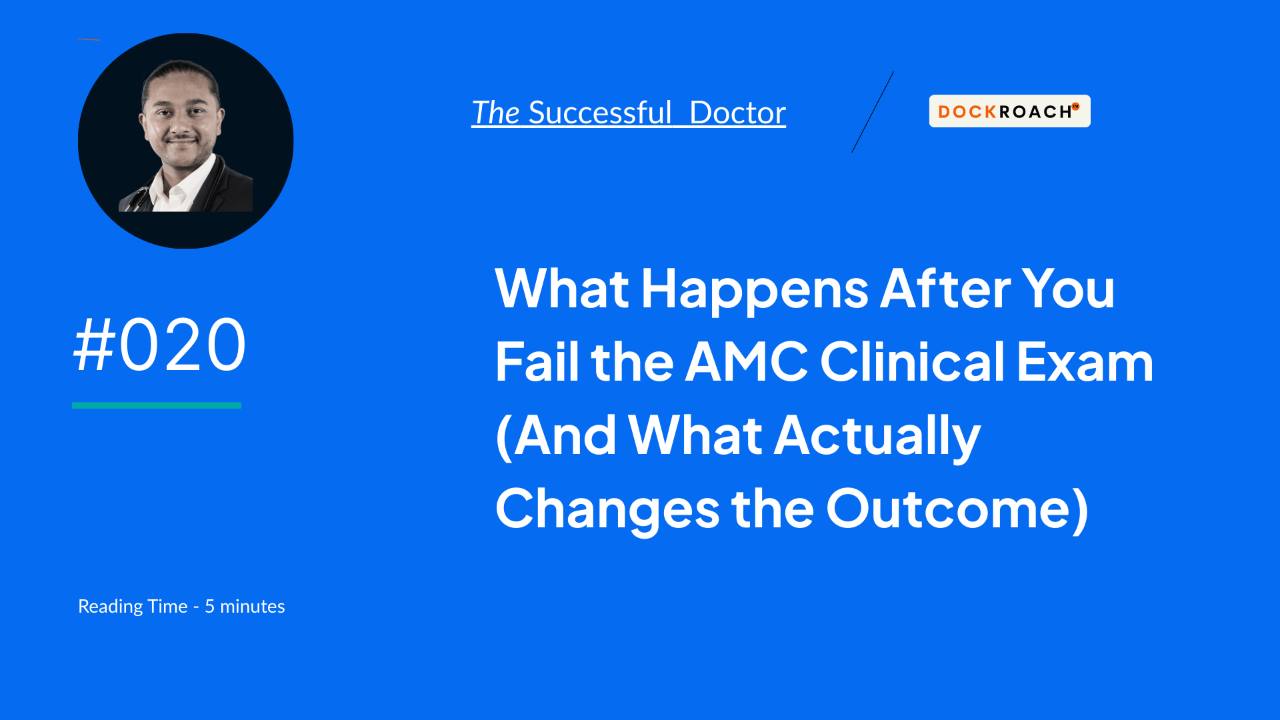The 3 Hidden Reasons Why Most Candidates Fail the AMC Clinical Exam
Read time: 7 minutes
You can have all the knowledge, all the clinical experience — and still walk out of the AMC Clinical Exam feeling defeated.
This isn’t about intelligence.
It’s about understanding the real reasons candidates struggle.
Today, I’m going to share the three hidden causes of failure — and how to overcome them.
Not with theory, but with the same practical, proven strategies that helped me and countless others turn the tide.
Most doctors don’t fail this exam because they don’t know enough.
They fail because, at the critical moment, they freeze, fumble, or forget what they already know.
When you learn how to conquer these three obstacles, your knowledge finally has the space to shine.
You may have already felt this:
The case begins. You know the content. But the words won’t come out right — or don’t come out at all.
You feel the clock ticking. The pressure mounting.
This isn’t a lack of preparation.
This is anxiety, poor structure, and miscommunication at work — the silent saboteurs that can derail even the most experienced candidates.
You don’t pass the AMC Clinical Exam by knowing everything. You pass by showing what you know — calmly, clearly, and compassionately.
The 3 Hidden Reasons Why Most Candidates Fail the AMC Clinical Exam:
-
Mental Overload
-
Lack of Structure
-
Poor Counseling Skills
Here’s what’s standing in the way — and how to fix it:
1. Mental Overload
Anxiety steals your clarity. You freeze not because you don’t know the case — but because your mind is flooded.
The AMC Examiners themselves advise:
“Although this is a stressful examination situation, try to place yourself as the clinician you are and respond to the simulated patient as if they are in a real consultation with you.”
— AMC Tips from Examiners, October 2024
The fix?
Train your nervous system like you train your knowledge:
-
Use deep breathing
-
Build mental rehearsals into your routine
-
Create a reliable plan to fall back on under pressure
Mastering your mind is part of mastering this exam.
2. Lack of Structure
A scattered approach leads to scattered results.
The AMC examiners repeatedly highlight this mistake:
“Incomplete performance of all the tasks is unlikely to constitute an overall satisfactory performance.”
Many candidates jump ahead, assume the diagnosis too soon, or take a random, scattergun approach to questioning or examination.
The fix?
Structure isn’t just about the order of tasks — it’s about having a clear, practiced approach within each part of the station.
- There’s a structure for how you use your reading time.
- A structure for how you take history.
- A structure for how you conduct the physical examination.
- A structure for how you explain the diagnosis.
- And a structure for how you explain the management plan.
Each of these must be rehearsed well before you sit in front of the examiner — so that when the pressure is on, the process feels familiar and natural.
Structure gives you something to fall back on.
It keeps your delivery calm, systematic, and professional — even when your mind wants to panic.
3. Poor Counseling Skills
Big words don’t build trust — simple, patient-centered explanations do.
AMC examiners emphasize:
“Avoid using technical language and euphemisms when giving diagnoses or explanations to the patient/carer.”
Too many candidates rely on textbook language that sounds robotic or confusing.
The fix?
-
Speak like a human, not a textbook
-
Use plain English, relatable metaphors, and the six Cs:
Condition, Commonality, Cause, Clinical Features, Complications, Cure & Care -
Pause and check for understanding — just like you would with a real patient
Connection beats complexity.
My Story: From Overthinking to Execution
When I began preparing for the AMC Clinical Exam, I had already worked as a doctor for 6 years. I knew the medicine.
But in my first role-play, I stumbled — not because I didn’t know the case, but because I was trying to be perfect.
I feared criticism more than I feared failure.
And that fear paralyzed me.
Even in my actual exam, I felt it creeping in.
The turning point came when I realized: perfection wasn’t the goal — clarity was.
One case that nearly tripped me was counseling a pregnant mother on thalassemia. I knew the topic inside out. But anxiety threatened to cloud my delivery.
I took a breath. I returned to my structure:
-
Start with the chief complaint
-
Move through the history
-
Explain using the six Cs
I found my rhythm. The examiner nodded. The patient smiled.
I’ve since coached many candidates through the same struggles. One student was stuck using textbook explanations. Once she learned to explain like a human — not a textbook — everything changed.
She connected. She passed.
And she did it by applying these same principles.
“Every adversity, every failure, every heartache carries with it the seed of an equal or greater benefit.”
— Napoleon Hill
“All big things come from small beginnings.”
— James Clear
Every small, structured role-play you do from here on is one step closer to success.
Stay focused. Stay deliberate.
That’s all for now.
I’ll see you next fortnight.






